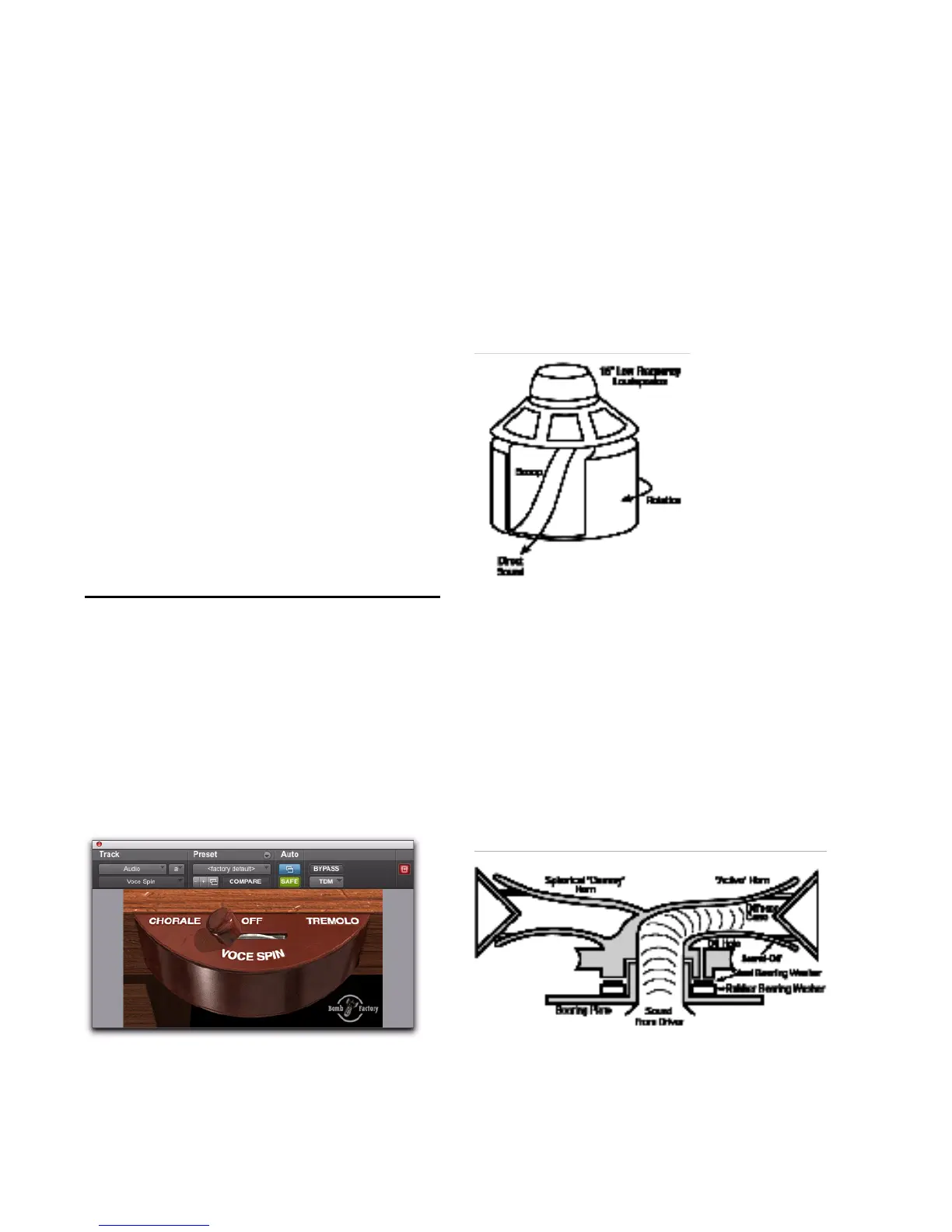Bomb Factory Plug-ins Guide54
Electric Pianos
Many electric pianos feature built-in vibrato.
But if the sound you’re using doesn’t provide a
realistic vibrato (perhaps you’re wrestling with a
sampler), track dry and apply the effect later.
Guitar
A certain popular guitar amp has a knob that
says “Vibrato” but it’s really just Tremolo. Trem-
olo is amplitude modulation; the sound gets
louder and quieter. Vibrato, in contrast, imparts
pitch change. A select few highly sought after
‘50s Magnatone guitar amps feature a true tube
vibrato (one even does stereo!) You can approx-
imate this sound by recording guitar direct (or
starting with a clean miked sound), applying
Voce Chorus/Vibrato, then using SansAmp™
PSA-1.
Voce Spin
(TDM, RTAS, and AudioSuite)
Voce Spin provides the most accurate simula-
tion of the well-loved rotating speaker. 15 classic
recording setups feature horn resonance,
speaker crossover, varying microphone place-
ment—even the “Memphis” sound with the
lower drum’s slow motor unplugged!
How Voce Spin Works
Don Leslie invented the rotating speaker in
1937. His design is simple and elegant: an inter-
nal 40-watt tube amplifier feeds a speaker cross-
over, which splits the signal.
All frequencies below 800 Hz go to a 15” bass
speaker and all frequencies above 800 Hz go to a
compression horn driver.
The large bass speaker is bolted to the cabinet
and a foam drum directly below the speaker re-
flects the bass outward.
For the high frequencies, a treble horn with two
bells reflects the sound from the compression
horn driver located below.
Only one bell actually produces sound; the
other is merely a counterbalance.
Voce Spin
Lower speaker assembly
Upper speaker assembly

